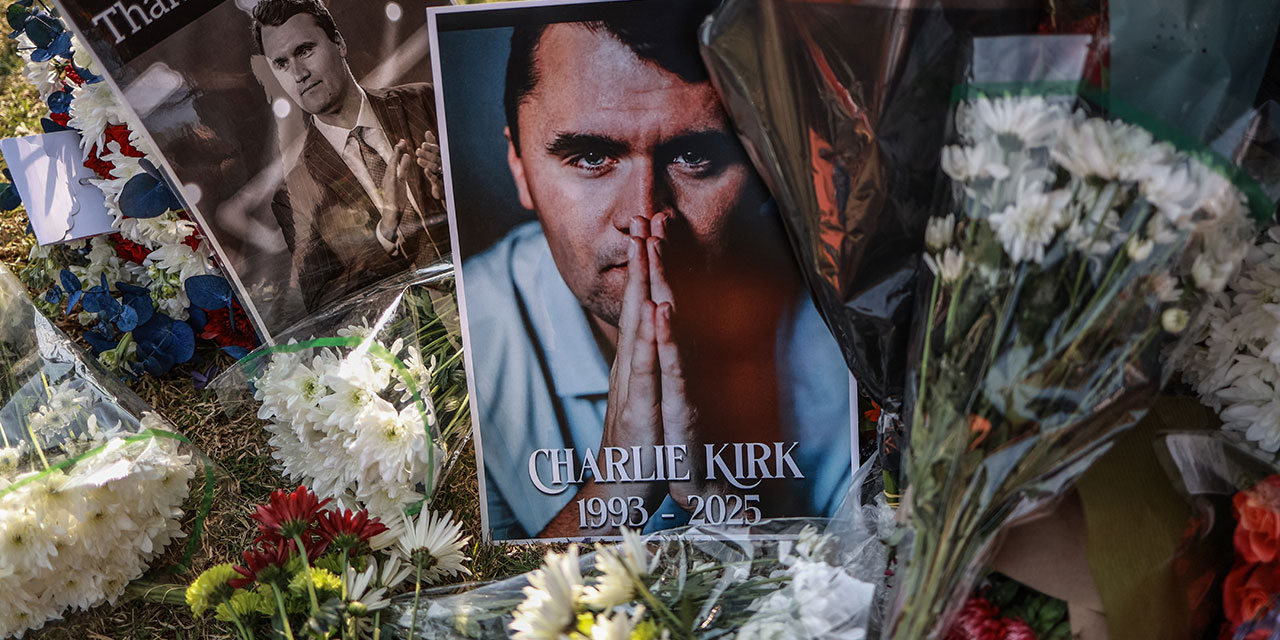
Not even Utah Valley University is immune.
On August 31, 2025, a Change.org petition titled “Stop Charlie Kirk From Spreading Hate on Utah Campuses” started circulating. Motivated by Kirk’s upcoming appearances at Utah Valley University and Utah State University, the petition embraced the equations favored by student narcissists everywhere when those students seek to censor and exclude:
Proposition one: speech that challenges campus orthodoxies is “hate speech.”
Proposition two: people who disagree with campus orthodoxies are “haters.”
Proposition three: “hate speech” and “haters” cause harm.
Proposition four: because of that harm, “hate speech” and “haters” should be silenced, stigmatized, and excluded from college campuses and other citadels of tolerant, inclusive culture.
The petition dressed up those equations with the familiar tropes of student sanctimony and fragility:
Kirk’s presence on campus would be a “threat to the inclusive, respectful environment that our campuses are supposed to represent.”
Universities have a “responsibility to protect students from harassment, hostility, and the legitimization of hate under the banner of ‘debate.’”
“When speakers with a record of targeting marginalized groups are given the microphone, the result isn’t dialogue—it’s harm.”
Were Utah Valley University and Utah State University to allow Kirk to speak, they would be “endorsing rhetoric that directly undermines their stated commitments to diversity, equity, and inclusion.”
These hothouse phrases are usually associated with the denizens of the Ivy League and other selective colleges, but the ideology of totalitarian safetyism has spread to every college campus that is not explicitly and militantly countercultural—including, it would seem, Utah Valley University.
Commenters among the petition’s alleged 6,700 signatories demonstrated their own mastery of the rhetoric of suppression and exclusion. Self-described “UVU alum” William, from the Provo suburb of Orem, wrote: “I am incredibly disappointed in [UVU] President [Astrid] Tuminez for giving a platform to a man who attacks the rights of women, LGBTQ, people of color, and other marginalized Americans. Do not be fooled, this is not a question of free speech and open debate, Kirk himself does not respect such ideas. This is an example of the paradox of tolerance, where we must deny the intolerant lest they make any tolerance a thing of the past.”
The core tenet of repressive academic safetyism—that officially designated student victim groups are dangerously vulnerable to meanie “haters”—is laughably delusional. There have been few more pampered and richly endowed individuals than early twenty-first century American students. Yet they are encouraged to think of themselves as “unsafe” by the very adults who should be leading them toward a grounded understanding of reality. And that is because the adults on campus are even more invested than students in maintaining the hegemony of leftism—a belief system enabled in part by the conceits of fragility and dangerous “haters.”
Equally ludicrous: the notion that it is conservatives like Kirk who hate and who are “intolerant,” and not the campus scourges. Whole academic disciplines are organized around vilifying whites for white privilege and white supremacy. The banshee mobs who shut down conservative guest speakers do not radiate tolerance and good will.
And now that counterfactual ideology of safetyism has spread widely and has reached its logical lethal conclusion. Kirk was gunned down by a sniper’s bullet after cheerfully tossing out MAGA hats to a crowd of thousands at Utah Valley University. A few hours later, MSNBC political commentator Matthew Dowd explained Kirk’s responsibility for his own assassination: “Hateful thoughts lead to hateful words, which then lead to hateful actions.” (MSNBC subsequently terminated Dowd’s contract.)
Kirk never expressed “hate” toward allegedly “marginalized Americans.” He disagreed with propositions that classify some groups as inherently oppressed and other groups as inherent oppressors, based on those groups’ race and sex. He disagreed that sex and gender are social constructs. He disagreed that immigration levels should be determined by illegal entrants to the country, not by American citizens. And he expressed his disagreement through civil debate. Attendees at his “Prove Me Wrong” college lectures who disagreed with him were given priority among audience questioners so that they could challenge his views. Far from being a “hater,” Kirk was the sunniest personality on the MAGA right—buoyant, optimistic, and eager to engage with those who hated him.
Matthew Dowd’s version of the campus hate formulae is admittedly garbled. He seems to designate the murderous reaction to Kirk’s alleged “hateful thoughts” and “hateful words” as part of the causal chain of “hate.” The purer version of the formulae is provided by the assassination itself: because “haters” and “hate speech” are a “threat” to student safety, both must be eliminated by any means necessary.
This sense of entitlement to commit violence in the name of tolerance and social justice has become a primary characteristic of the Left. To be sure, the Right has its thugs who ambush and attack politicians, but their numbers are dwarfed by the routine violence of members of the Left. That leftist sense of entitlement unites Antifa, the Ferguson and George Floyd race rioters, the Los Angeles anti-ICE rioters, the destroyers of statues, the arsonists who torch cars and police precincts, the mass looters, the stalkers of judges, the assailants of conservative college speakers. It bred the assassination of a health-care executive, presumably the attempted assassinations of Donald Trump, and now apparently the murder of Charlie Kirk. A dinner conversation in the murderer’s household before the assassination centered around how Kirk was “full of hate and spreading hate,” according to Utah governor Spencer Cox.
The January 6 Capitol riot, that favorite retort of the elites to conservative claims of regular leftist violence, was a pathetic and deplorable tantrum of the deceived. But it was a one-off act of violence whose physical gravity pales in comparison to the repeated anarchy of the Left.
It was grimly fitting that Kirk was murdered on a college campus, the source of the “hate speech equals violence” ethic that demonizes philosophical opponents and creates a presumption that those opponents must be silenced for the good of America’s endemic victims. Kirk was breaking the stranglehold of that pitiless ideology over its intended targets—college students—giving them the courage to speak their minds in the face of institutional power. Kirk would not be silenced in life, and he will not be silenced in death—others will take up the banner of dissent and will be more determined than ever to challenge academic fictions. In the short term, however, it is hard to see how Turning Point USA continues in its present form in the absence of its charismatic leader.
Charlie Kirk’s death has given President Donald Trump’s efforts to reform campus culture even greater urgency. It is too late to call back the products of that culture who are now ensconced throughout elite institutions. But we can at least reduce the rate at which their successors are bred.
Photo by PHILL MAGAKOE/AFP via Getty Images
City Journal is a publication of the Manhattan Institute for Policy Research (MI), a leading free-market think tank. Are you interested in supporting the magazine? As a 501(c)(3) nonprofit, donations in support of MI and City Journal are fully tax-deductible as provided by law (EIN #13-2912529).

















